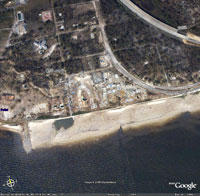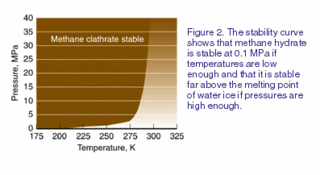
Three pieces of pretty bad environmental news this week:
Hurricanes Amped up by Warmer Oceans
A news release from the Georgia Institute of technology and NCAR (National Center for Atmospheric Research) warns that Global Warming is boosting hurricane intensity. The Science Daily web site summarized the article this way: The number of Category 4 and 5 hurricanes worldwide has nearly doubled over the past 35 years, even though the total number of hurricanes has dropped since the 1990s, according to a study by researchers at the Georgia Institute of Technology and the National Center for Atmospheric Research (NCAR). The shift occurred as global sea surface temperatures have increased over the same period.
You can find the article from Science Daily here and the original work from NCAR here and the original paper from Peter Webster of Georgia Tech in PDF format here.
So as the oceans warm up the hurricanes that form over them will be stronger, because the oceans will have more heat in them.
Methane
Methane is a serious greenhouse gas and can also react with oxygen to produce carbon dioxide. SpaceRef.com points to research done by Dave Kemp and supervisors Drs. Angela Coe and Anthony Cohen, of Open University along with Dr. Lorenz Schwark of the University of Cologne indicates at least three massive burps of methane gas in the geologic past have triggered extinction events by raising the earth’s temperature by 10°C. The report goes on: The methane came from gas hydrate, a frozen mixture of water and methane found in huge quantities on the seabed. This hydrate suddenly melted, allowing the methane to escape.
So here’s another potential upheaval from Ocean Warming: There are still significant quantities methane hydrate on the ocean floor off the coast of the Carolinas. The U.S. Geological Survey describes these deposits as A pair of relatively small areas, each about the size of the State of Rhode Island, shows intense concentrations of gas hydrates. USGS scientists estimate that these areas contain more than 1,300 trillion cubic feet of methane gas, an amount representing more than 70 times the 1989 gas consumption of the United States.

Methane Hydrate (or Methane Clathrate) is stable at a variety of pressures and temperatures with the release volume accelerating abruptly past 3°C.
So is there a scenario where ocean warming caused by global warming brings the deep ocean temperatures around the Clathrate deposits to a point where massive amounts of methane get released into our atmosphere? I don’t know, but it doesn’t sound too implausible to me. I would be pleased to hear counter arguments. For an interesting description of what a massive methane release could do read Bruce Sterling’s classic 1995 novel Heavy Weather.
How Long Can You Tread Water…..
An article on Physorg.com cites a study by Mark Serreze, a scientist at the National Snow and Ice Data Center at Colorado University that indicates that the Arctic has now entered an irreversible phase of warming that will further accelerate the loss of the polar sea ice creating a rise in ocean levels.
So we now have the rate of sea level rising rising as more and more earth is stripped of its ice covering. My guess is that all of the estimates about how long this defrosting process will take are woeful underestimates due to these unforeseen acceleration mechanisms.
No comments:
Post a Comment